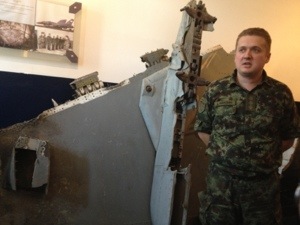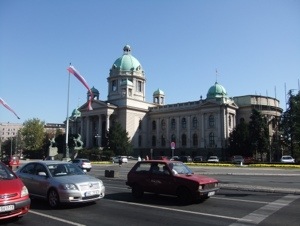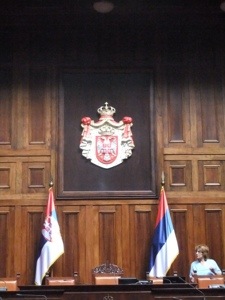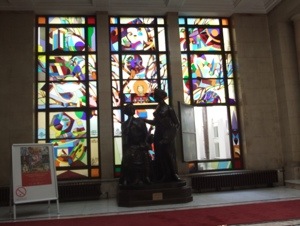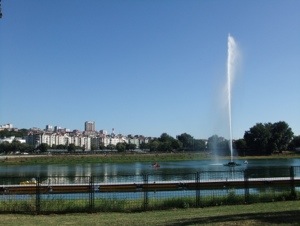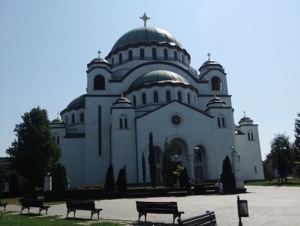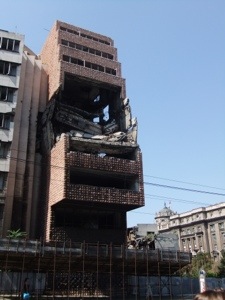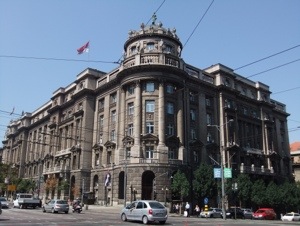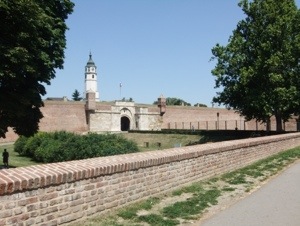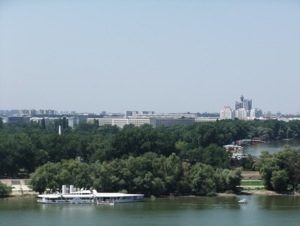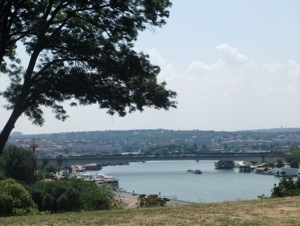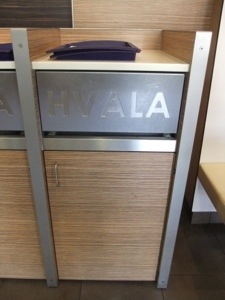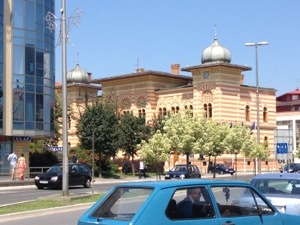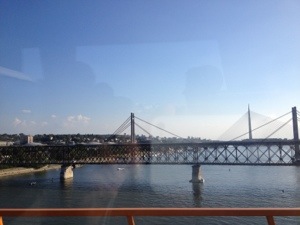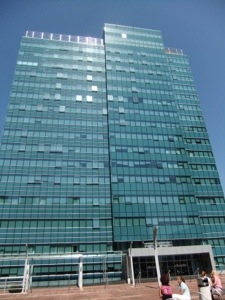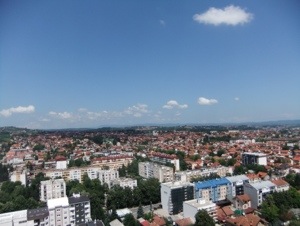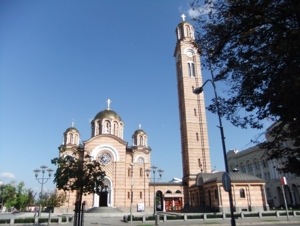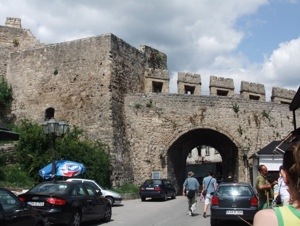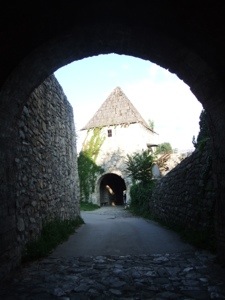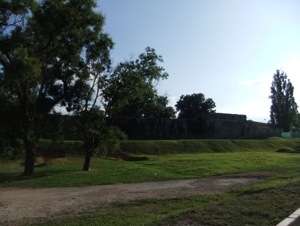Sorry I’ve been MIA for the past few days…nothing super big has happened so I figured I’d wait and cram it into one post.
So on Thursday, we visited the Serbian Army first and we met with a missile defense brigade. They were very kind and I enjoyed meeting with them, but they talked primarily about the NATO bombings of 1999 – which isn’t surprising I guess. I was just more interested in finding out information related to the Bosnian War – how many soldiers were sent to fight there? How many arms did Serbia supply to Bosnian Serbs? Things of that nature. I didn’t dare ask for fear of being disrespectful. Overall, it was an informative meeting but I have very little interest in the military so there’s not much to say about it.
We then met with the Military Academy, which has study programs beginning in high school and continuing through Ph.D. The Colonel that we met with was also really nice, and a different Lieutenant Colonel from the Navy showed us around afterwards. The complex is extremely large and pretty depressing – what I would call very communist/socialist looking. Definitely needs some updating…
Yesterday, we met with an NGO called Serbia on the Move – which was very interesting and I really enjoyed it. The guy we met with talked about different campaigns that they’ve done in Serbia – including launching a website that is something like rateMD, which was shut down by the government within two weeks. The shutdown created a lot of backlash, and they’re still trying to find legal loopholes to relaunch the site without any risk of it being taken down again. It a different type of meeting than others we’ve had because he talked more about the public health issues within the country as well as related corruption. Overall, great meeting – the guy definitely seemed like he had a wealth of knowledge and we could have learned a lot from him.
Finally, today, Indy & I went to Ada Ciganlija again to get our tan on – it definitely worked! The only issue is that now my arms are darker than my legs…but I guess that shouldn’t be surprising. We were there for about 4.5 hours and it was very entertaining – so many cute little kids trying to learn to swim and running around, as well as quite an interesting array of adults. I really like that here, people don’t care what they look like – they could be 250+ pounds and still wear a bikini because they want to…not that it’s very pleasant to look at, but I love that they’re confident and self-assured enough to do so.
